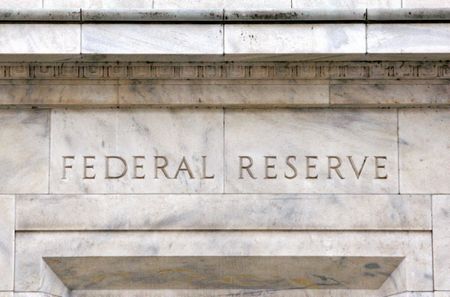 1
1 1
1
LONDON (Reuters) -It’s summer camp season and not to be left out, U.S. rate setters and overseas pals gather in Jackson Hole, Wyoming, to talk central banking.
The so-called BRICS grouping gathers too amid increasing disquiet in some big emerging markets, while business activity data globally and China property woes mean August is proving far from dull.
Here’s a look at the week ahead in markets from Ira Iosebashvili in New York, Li Gu in Shanghai, Yoruk Bahceli in Amsterdam, Jorgelina do Rosario and Marc Jones in London and Rachel Savage in Johannesburg.
1/ SUMMER CAMP!
U.S. Federal Reserve officials (plus friends from the ECB, BoE and BOJ) descend on Jackson Hole, Wyoming on Aug. 24-26 for their annual central bank confab.
A year ago, uncertainty swirled around how high the Fed would raise rates and whether aggressive tightening could defeat inflation without triggering recession.
Investors are more sanguine today, as expectations grow for a Goldilocks scenario of resilient growth and cooling price pressures.
That doesn’t mean central banks are off the hook. Inflation remains sticky in places and investors want to know how long it will take for central banks to switch to easing. Bonds yields are rising again, threatening to dent stocks.
And on Wednesday, the spotlight turns to results from chip-maker Nvidia, whose stock is up almost 200% this year in-part on AI excitement.
2/ CHINA: HANDLE WITH CARE
Fresh strain in China’s property market exacerbates the sense of crisis building in the world’s No.2 economy.
The onus is on authorities to do more after an emergency rate cut last week failed to shore up sentiment. On Monday, China cut its one-year benchmark lending rate in a bid to boost credit demand.
Other measures investors are pining for include a relaxation of home-buying restrictions in cities such as Beijing and Shanghai. Property accounts for roughly a quarter of the economy and news that new home prices fell for the first time this year in July is worrying. Country Garden, once China’s largest developer by sales, is teetering near default; a major Chinese trust company has failed to make payments on financial products following wrong-way property bets and embattled developer China Evergrande has filed for bankruptcy protection in the United States. Peak China pessimism, it appears, has not been reached yet.
3/ HOLD ON
Wednesday’s August flash PMI business activity indicator, released across a host of economies, could throw cold water over optimism about resilient global growth and help traders get a sense of how long rates will stay high.
In July, a services sector slowdown pushed U.S. business activity to a five-month low; overall activity in the euro area contracted for the second-straight month.
Earlier in 2023, the services sector had supported economic growth across developed economies even as manufacturing slumped.
Input and output prices will also come under scrutiny as rising oil prices and strong labour markets suggest inflation is not contained yet.
European PMIs could provide a bigger signal on whether the European Central Bank will hike again in September and if the Bank of England opts for a big rate increase.
4/ BUILDING BRICS
Leaders of the ‘BRICS’ – Brazil, Russia, India, China and South Africa – meet Tuesday-Thursday in Johannesburg as they bid to turn the loose bloc into a global counterweight to the West.
Expansion is expected to be high on the agenda – some 40 nations have expressed interest in joining, either formally or informally, according to host South Africa. These include Saudi Arabia, Argentina and Egypt.
Not everyone is keen though, including Brazil, which is concerned its influence could be diluted. And Vladimir Putin, who will be videocalling in due to his international arrest warrant, has a headache back at home as a slumping rouble fuels speculation of tough new capital controls being introduced.
5/ GO BIG?
Turkey’s central bank is poised to raise rates on Thursday for the third time in a row since Hafize Gaye Erkan was appointed as governor in early June.
The question is how big the hike will be as Turkey battles double-digit inflation. A policy U-turn at the last two meetings delivered rate increases that fell short of investors’ expectations.
While the key rate stands at 17.5%, the consumer prices index leapt to a 25-year high above 85% last year and is expected to rise again to peak above 60% in 2024.
Erkan vowed in July to continue with “gradual and steady rate hikes” after years of President Tayyip Erdogan pushing for lower rates.
A big increase is unlikely to faze emerging market investors. Russia just jacked up its rates by 3.5 percentage points, and Argentina, a whopping 21 percentage points.
(Compiled by Dhara Ranasinghe; Editing by Stephen Coates)